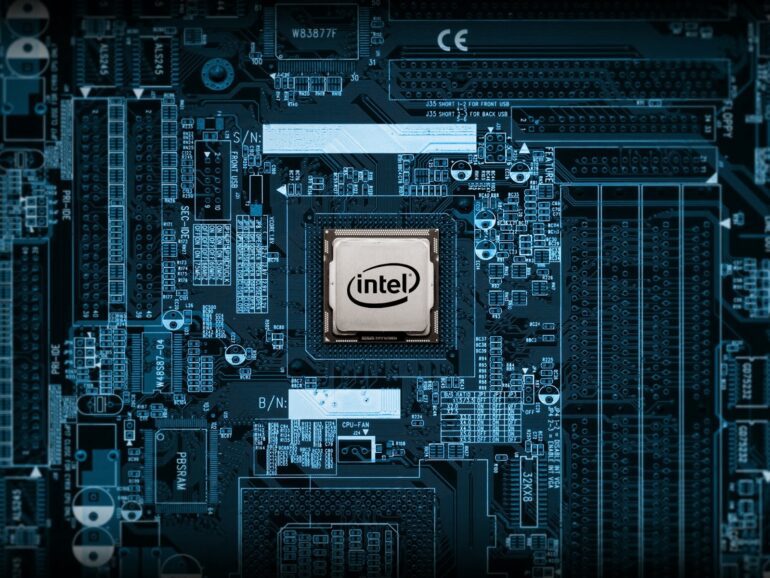TL;DR:
- Intel collaborates with Accenture to offer 34 open source AI reference kits.
- Each kit includes model code, training data, and instructions for AI deployment.
- The kits optimize AI for on-premises, cloud, and edge environments.
- AI reference kits cater to various industries, providing performance improvements.
- Intel’s initiative accelerates AI adoption and reduces development time and cost.
Main AI News:
In an exciting development, Intel has unveiled a comprehensive collection of 34 open source AI reference kits, crafted in partnership with Accenture over several years. These cutting-edge kits are set to empower developers and data scientists by facilitating the swift and seamless deployment of artificial intelligence (AI) applications. Packed with model code, training data, machine learning pipeline instructions, and oneAPI components, these reference kits are designed to optimize AI and offer accessibility across multiarchitecture on-premises, cloud, and edge environments.
The world of AI development is about to witness a transformation as Intel opens the doors to 34 AI reference kits, enabling faster and more user-friendly AI implementation for developers and data scientists. Each kit comprises a treasure trove of resources, including model code, training data, instructions for the machine learning pipeline, and libraries, all complemented by oneAPI components that enhance AI optimization. This initiative marks a pivotal step towards democratizing AI across various sectors, from health and life sciences to finance, manufacturing, retail, and beyond. Intel is dedicated to fostering an AI-driven future, not only through its suite of AI-accelerated processors and systems but also by actively contributing to an open AI software ecosystem.
Dr. Wei Li, Intel’s Vice President and General Manager of AI and Analytics, emphasized the significance of the AI reference kits, stating, “Intel AI reference kits give millions of developers and data scientists an easy, performant, and cost-effective way to build and scale their AI applications.” He further highlighted that these kits cater to diverse domains, from health and life sciences to financial services, manufacturing, retail, and more, underscoring Intel’s commitment to promoting AI adoption everywhere. These kits are built on the strong foundation of Intel’s AI software portfolio and leverage the open, standards-based, oneAPI multiarchitecture programming model.
The impact of this development is far-reaching, as the reference kits are constructed using the oneAPI open, standards-based, heterogeneous programming model and various components of Intel’s comprehensive AI software portfolio, such as the Intel® AI Analytics Toolkit and the Intel® Distribution of OpenVINO™ toolkit. By leveraging these kits, AI developers can streamline the integration of AI into their applications, leading to significant performance improvements and a more productive workflow compared to traditional model development.
The benefits of these preconfigured kits extend across various industries, including consumer products, energy and utilities, finance, healthcare, manufacturing, retail, and telecommunications. Let’s take a glimpse at some notable advantages across these domains:
• For enterprises seeking to set up interactions with conversational AI chatbots, the AI reference kit provides inferencing in batch mode up to 45% faster with oneAPI optimizations.
• In the realm of life sciences, the AI reference kit aimed at automating visual quality control inspections demonstrated training up to 20% faster and inferencing 55% faster for visual defect detection with oneAPI optimizations.
• The AI reference kit for predicting utility asset health and delivering higher service reliability offers up to a 25% increase in prediction accuracy.
The real impact of these AI reference kits lies in their ability to drastically reduce the time to develop solutions, from weeks to days, allowing data scientists and developers to train models faster and at a lower cost. Moreover, these kits overcome the limitations of proprietary environments, offering portability for open accelerated computing applications, all thanks to the powerful AI tools and optimizations powered by oneAPI.
John Giubileo, Managing Director at Accenture, highlighted the positive outcomes of collaborating with Intel on AI reference kits, stating, “The kits, built on oneAPI, are designed to offer developers a portable and efficient solution for AI projects, which reduces project complexity and the time to deployment across industries.”
Looking ahead, Intel is committed to refining these reference kits based on community feedback and contributions. The extensive list of kits includes solutions for visual quality inspection, enterprise conversational AI chatbot setup, predictive asset health analytics, medical imaging diagnostics, document automation, AI-structured data generation, and much more. Developers and data scientists can access these invaluable resources for free by visiting Intel’s official website or GitHub.
Conclusion:
Intel’s introduction of open source AI reference kits signifies a game-changing advancement in the AI development landscape. These comprehensive kits, developed in collaboration with Accenture, enable developers and data scientists to deploy AI applications faster and more efficiently. By offering model code, training data, and machine learning instructions, Intel empowers businesses across industries to embrace AI technology and drive innovation. The reference kits’ accessibility and optimization for multiarchitecture environments further enhance their appeal, making AI deployment easier and more cost-effective. As a result, the market can expect a surge in AI adoption, driving transformative solutions across various sectors and paving the way for an AI-driven future.

